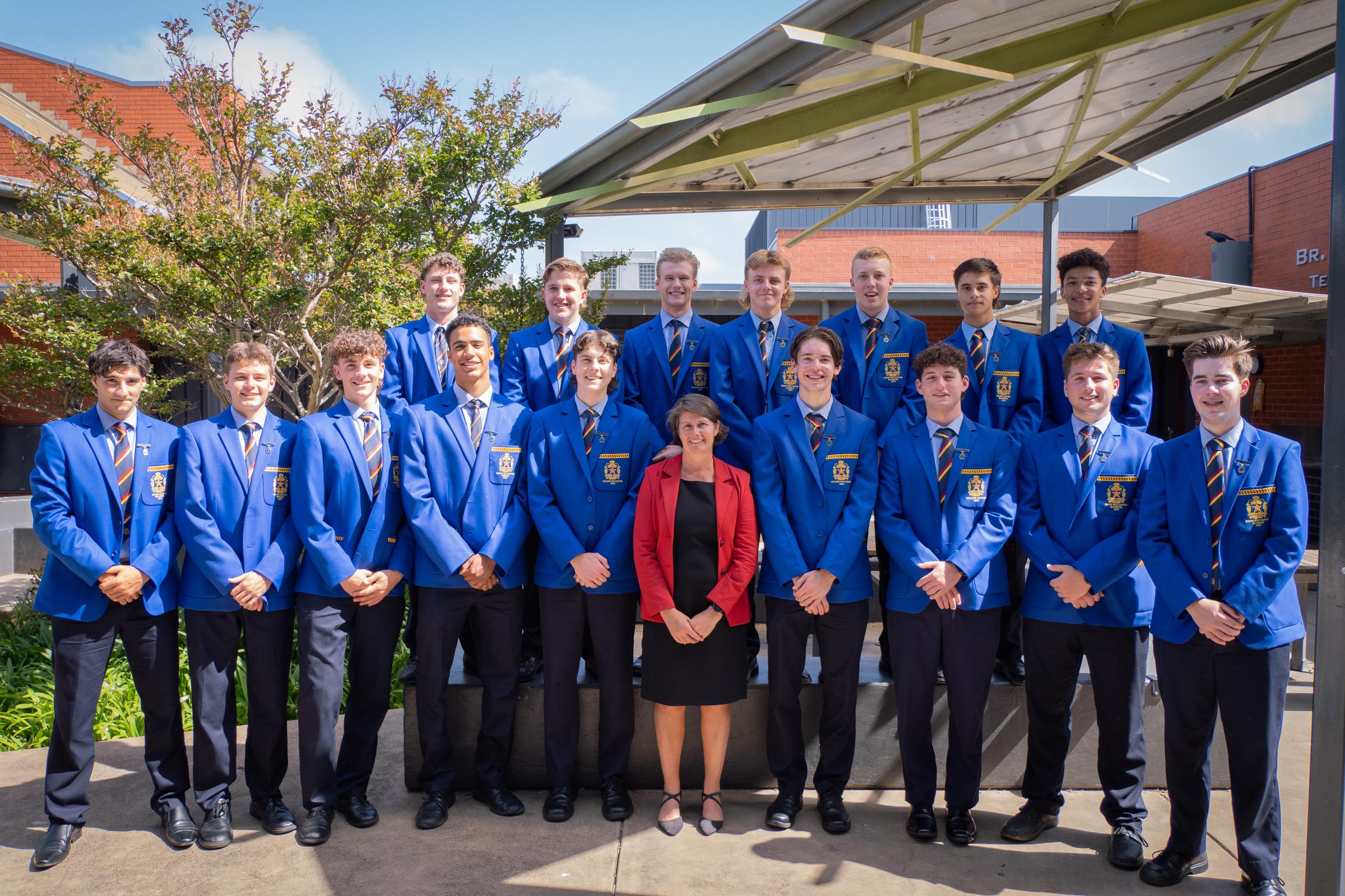Principal's Update
Per Vias Rectas

Principal's Update
Per Vias Rectas
St Bede’s College has returned to Balgo, a Lasallian Indigenous school in Western Australia. Some of our Year 10 students and three staff members have now completed this journey as part of our Indigenous Immersion Program.
We’re very proud of the work they’ve done to strengthen our connection with this community. I encourage you to learn more about their experiences in the Faith and Mission section of this Newsletter.
As part of the funding agreement between the Catholic Education Commission of Victoria (CECV) and the Australian Government, schools must report on specific categories of School Performance Information. This information is supplied to the College community in many ways that include (but not limited to): our regular Newsletter; an Annual Report to the School Community, the annual College Journal and our website.
I am pleased to inform you that 2023 St Bede’s College Annual Report to the School Community (which covers the 2022 Academic Year) is now available on the College website here and upon request from the College Office.
The report covers three key areas:
Laudato Si' is celebrated in Australia from 16 to 24 May, and I offer some comments from Fr Andrew Hamilton SJ who writes for Jesuit Communications and Jesuit Social Services.
“Laudato Si’ Week is little noticed in much of the Catholic Church. It is barely mentioned on church websites and programs. That is not to say that the Papal Encyclical and its effects have been forgotten. But seven years after the Encyclical, it is still worth revisiting. In our present situation where many people face economic hardship and are anxious about such basic needs as food and shelter, it is easy to retreat into our own small world and forget the larger issues that will determine the lives of our children and their descendants.
The genius of Laudato Si’ was to bring together the best available science, the best theology, the best reflection on economic ideologies, the broadest view of the relationships involved in human flourishing, and to hold them together in a deep spiritual vision. It did all this in speaking a language that Christians, atheists, scientists, politicians and ordinary people could understand.
Pope Francis drew attention to the way in which exploitation of the environment is related to the exploitation of persons, so that the slums within which the poor are compelled to live in unjust societies are intimately related to the destruction of the natural world and to the polluting of waterways and the air. Respect for the natural world and for each human being go together. We are related to our world in a network of relationships that are interlocking, so that respect needs to be given both to people and to our environment.
The restrictions on the economy after COVID, the social pressures on governments to act slowly in reducing emissions, and the greenwashing and other forms of resistance to action necessary to reduce emissions make it helpful to return to Pope Francis’ document today. Going soft on emissions will mean our descendants will do it hard as a result of our failure to care for the world we leave to them. Laudato Si’ encourages us to keep faithful."
Whilst ongoing reporting through our learning management system, Simon, enables parents to keep abreast of student progress, the mid-year Academic Reports, to be made available at the end of term, have important messages for parents and students.
I would encourage parents to put some time aside to engage with your son and genuinely analyse the ‘story within’ the Academic Reports. The Reports give a snapshot of student progress to date - on completed work, assignments and formal assessments. Based on the professional judgement of respective teachers, and guided by class performance to this stage, the Report presents a picture of a student’s performance, application, effort and general organisation.
Discussing this Report with your child can be used to celebrate those areas in which effort and achievement are positive, and to highlight those areas in which improvements need to be made. The analysis of reports should be used as the basis for meaningful discussions about establishing consistent and genuine levels of application with a view to achieving personal excellence at school during the second-half of the year.
The Mid-Year Report is partly about achievement (marks and grades), but even more about presenting a picture around directed effort and attitude to class work with a view to forming positive and successful approaches to studies.
The Learning Habits Matrix that accompanies the Reports will be of great help in such an honest analysis. Striving for ‘their personal best’ should be the aim of every student and fully appreciating what is required to improve in terms of work habits and application will be very helpful in this regard. I am sure that as parents, you would have similar expectations of your son. It is vitally important that an organised approach to study, a positive attitude and genuine levels of application and commitment are established as the basis for student achievement.
We encourage parents to use their child’s Report to acknowledge and affirm areas of success and achievement, while challenging ways in which further improvements can be made. The journey is a focus on progress, to help your child achieve their personal best.
Many thanks to all students for your ongoing efforts and diligence during Term Two, and to the families, teachers and staff who have supported them.
I wish you all a safe, healthy and restful break and look forward to welcoming everyone back on Campus for Term Three, Tuesday 11 July.
Deb Frizza
Principal